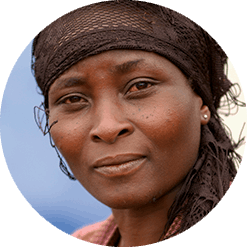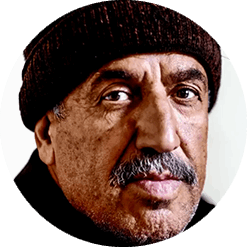DRC
In the Democratic Republic of Congo, chronic conflicts between militias have led to terrible abuses against the civilian population. More than one million people have been forced to flee their villages to save their lives. After sometimes several years of wandering, some return home, but find only hunger, thirst and disease.

“When the militias arrived in the village and killed my two brothers, we fled with my husband and children. We fled the clashes for two years, and finally we went home. But in our village, there is no drinking water. The spring is our only water source but it has never been developed. Our children are suffering enormously from diarrhoeal diseases caused by unsafe water.” Azonie, mother of 7 children and former refugee back in the DRC.
IRAQ
After several years of armed conflict, Iraq and its infrastructure are devastated. While clashes have ceased in some parts of the country, a completely different battle awaits millions of families: rebuilding their lives in devastated cities and villages, without food and drinking water.

“The people here are tired. The hospital is in poor condition. We have no more doctors, no more teachers. The armed groups have left but nothing is left. Before the war we had good water. They destroyed our wells, and now, look, the water is yellow… It’s because of the gas and the sulphur. It is difficult to drink this water, because we know the effect it has on our health. But we have no choice.” Sheikh Fayçal, spokesperson of Al-Shura village.
MALI
In Mali, one in two inhabitants lives below the poverty line. In the north of the country, water, which is rare and a vector of diseases, is a real curse. Even health centres do not have enough water to provide their care, and the deplorable sanitary conditions go so far as to put the health of doctors at risk.

“At the health centre, there is a total lack of water. To clean the rooms, do the treatments, maintain the equipment, we need water. We doctors should wash our hands before consulting each patient. But how can we do it without water? Here, patients and staff are exposed to infections. When a woman gives birth, water must be fetched from the river, or from neighbouring families. Without water, there can be no health!” Dr. Ousmane Dembele, Technical Director of the Sareyamou Community Health Centre.
